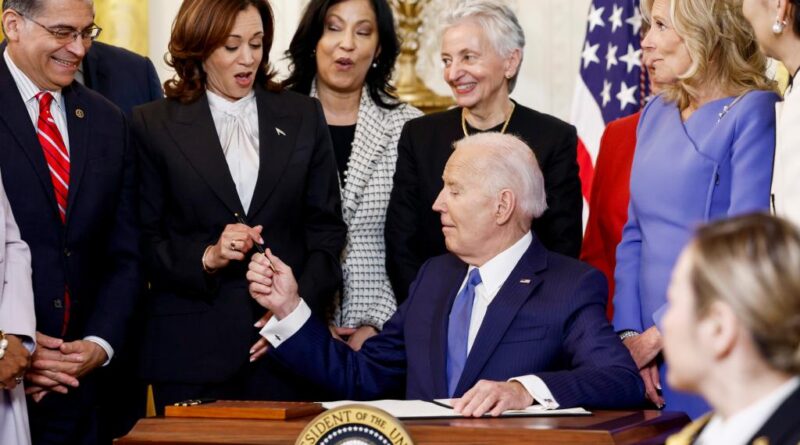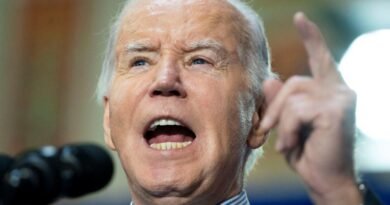The Importance of Kamala Harris’ Response: Defining What is a Woman

What does it mean to be a woman?
This question is one that Kamala Harris may avoid answering at the upcoming presidential debate.
If she is asked, will she respond like Supreme Court Justice Ketanji Brown Jackson, who avoided the question by saying, “I’m not a biologist” during her Senate confirmation hearing in 2022?
There is more at stake than just semantics.
Harris holds a significant lead over Donald Trump among female voters nationwide, including in critical swing states. Her response would indicate whether her administration plans to weaken Title IX protections for women’s sports and support advocates who want easier access to medical interventions for children and adolescents while creating legal barriers between parents and children.
Harris has not explicitly addressed gender identification on many major issues. She has never been pressed to state whether she believes biology is outdated and whether a person’s gender is solely based on self-declaration.
While her position may not be a secret to her supporters, her previous actions in her failed 2020 presidential campaign show a willingness to support radical programs such as taxpayer-funded transgender surgeries for prison inmates and illegal immigrants.
Advocates for Trans Equality have endorsed her, and various publications have noted her progressive stance on LGBTQ+ issues. The Biden-Harris administration has already implemented policies that prioritize gender identity over biological sex in antidiscrimination and Title IX regulations.
The debate around transgender athletes and their participation in women’s sports has also been a contentious issue. While the White House has postponed a final decision on this matter, the potential direction of a Harris administration is clear based on previous actions and support from House Republicans.
In California, where Harris previously served as a district attorney and state attorney general, legal protections for gender self-identification have significantly impacted women’s rights. The question of whether men who identify as women should have access to women’s shelters or prisons remains unanswered.
The decision on what constitutes a woman would have broader implications for Harris’s potential presidency. For example, would she support the promotion of Rachel Levine, a transgender admiral, to the position of Health and Human Services chief?
Levine is known for advocating for gender-affirming care for minors, a controversial practice that has raised concerns among critics.
The ongoing debate on gender identity and children’s rights is further complicated by legislation like the bill signed by California Governor Gavin Newsom, which prohibits schools from informing parents about their children’s gender identity exploration.
Asking the simple question, “What is a woman?” could provide insights into where Harris stands on issues related to gender identity, women’s rights, and the protection of children and parents in the face of changing ideologies and policies.



